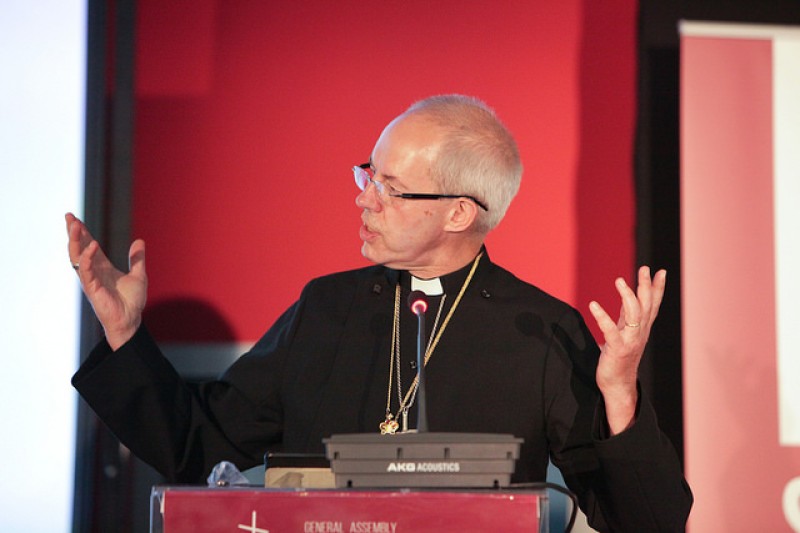Archbishop of Canterbury Justin Welby in Novi Sad. Photo: Mladen Trkulja/CEC
Some might find it ironical that one of the speakers on the question of the future of Europe at the Conference of European Churches (CEC) General Assembly, convening in Novi Sad, Serbia, should be a representative of the Church of England, a bit over two years after the United Kingdom voted to leave the European Union.
Speaking to the 450 participants on the future of Europe, Justin Welby, archbishop of Canterbury, dared to say that “Europe is not in danger. And there is no reason why I would suggest that Brexit or any other current crisis would derail the European Union or bring about the fall of Europe.”
Responding to a question from a journalist at the subsequent press conference, who asked him to explain a bit more—particularly regarding the young people who represent this future—Welby used a football metaphor, just before the World Cup kicks off: “If you want to get the ball, you have to be on the ground! I think that we first have to talk about these things with young people.”
Going beyond this appeal to civic commitment, the archbishop of Canterbury above all appealed to the commitment of Christians and churches. “The church crosses boundaries and borders as though they did not exist. Being in Christ, I am united by God and a family that extends around the world and crosses cultural, linguistic and ecumenical borders, led by the Spirit that breaks down all the walls that we seek to set up,” he said.
Obviously, this appeal to cross borders resounds in a special way in the context of Novi Sad, (the scene of NATO bombings in 1999), Serbia (a country at the gates of the European Union), and during the central gathering in the life of CEC. “The gift of reconciliation must call the churches to unity and, in that, we attach great importance to CEC and ecumenical work. Reconciliation is also much more than that: it draws us forward in our quest to become workers for peace,” he said.
Recognising the still smarting wounds on the continent of Europe, and in the churches, Welby recognised that reconciliation and peace-building were arduous paths, saying, “It is the journey of several generations, when our historical resentments and hatreds rise up in rebellion from the bottom of our hearts. It is not a matter of agreeing on everything—that is impossible—but of accepting diversity, and even discord, while still retaining love in all things.”
Acknowledging and accepting these disagreements, while retaining our love for one another, is also something to teach the youth of our countries. Welby invited his listeners to take young people to the places that recall the divisions of Europe and to accompany them so that they get involved in the places that have recently suffered fratricidal wars. “I took my own children to the Memorial at Caen,” he noted. “They discovered that, in conflicts, there is always a sharing of responsibility; that is the very poison of conflict. They also got involved in humanitarian action, which changed their lives.”
For high resolution photos of the CEC leadership please click here
